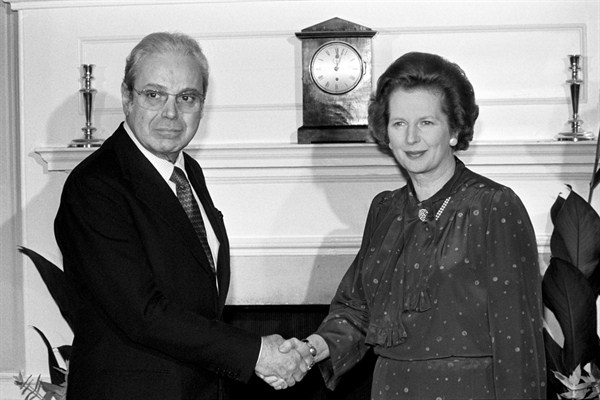Editor’s Note: Guest columnist Richard Gowan is filling in for Candace Rondeaux this week.
When former United Nations Secretary-General Javier Perez de Cuellar turned 100 last month, his current successor, Antonio Guterres, sent a congratulatory message stating that “I have often reflected on your example and experience for inspiration and guidance.” This sounds like a standard diplomatic pleasantry, but there may have been a more to it than that.
As U.N. chief from 1982 to 1991, Perez de Cuellar, a former Peruvian diplomat, was intimately involved in ending Cold War conflicts from Afghanistan to Central America. Guterres, since his appointment in 2017, has warned that the U.S., China and Russia risk starting a “new Cold War” if they do not rein in their current tensions. Senior U.N. officials, who have spent recent decades focusing on ending violence in the developing world, wonder if and how the international organization can work in a new era of great-power competition.

